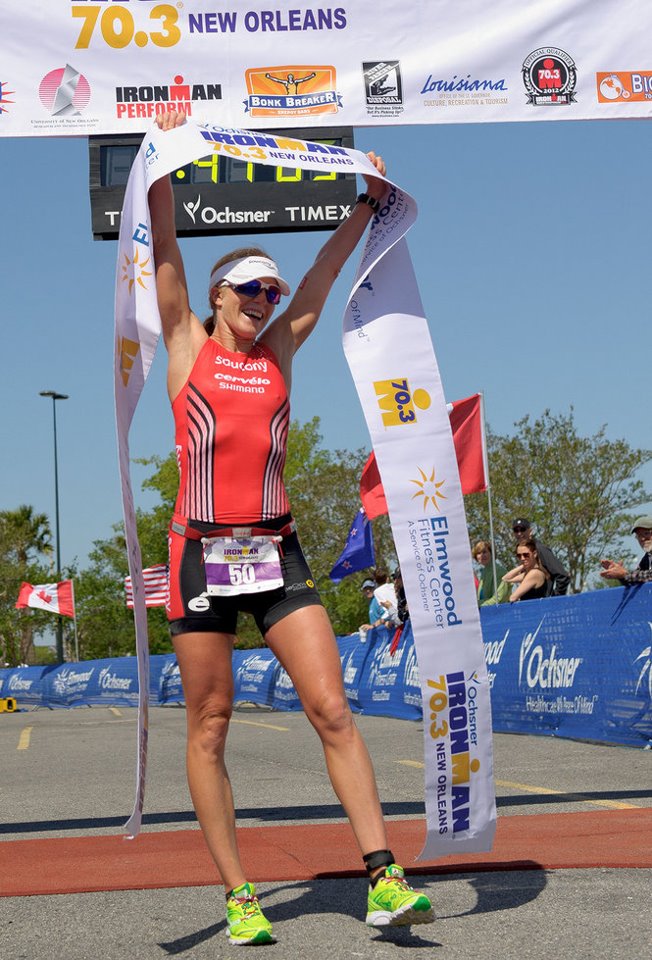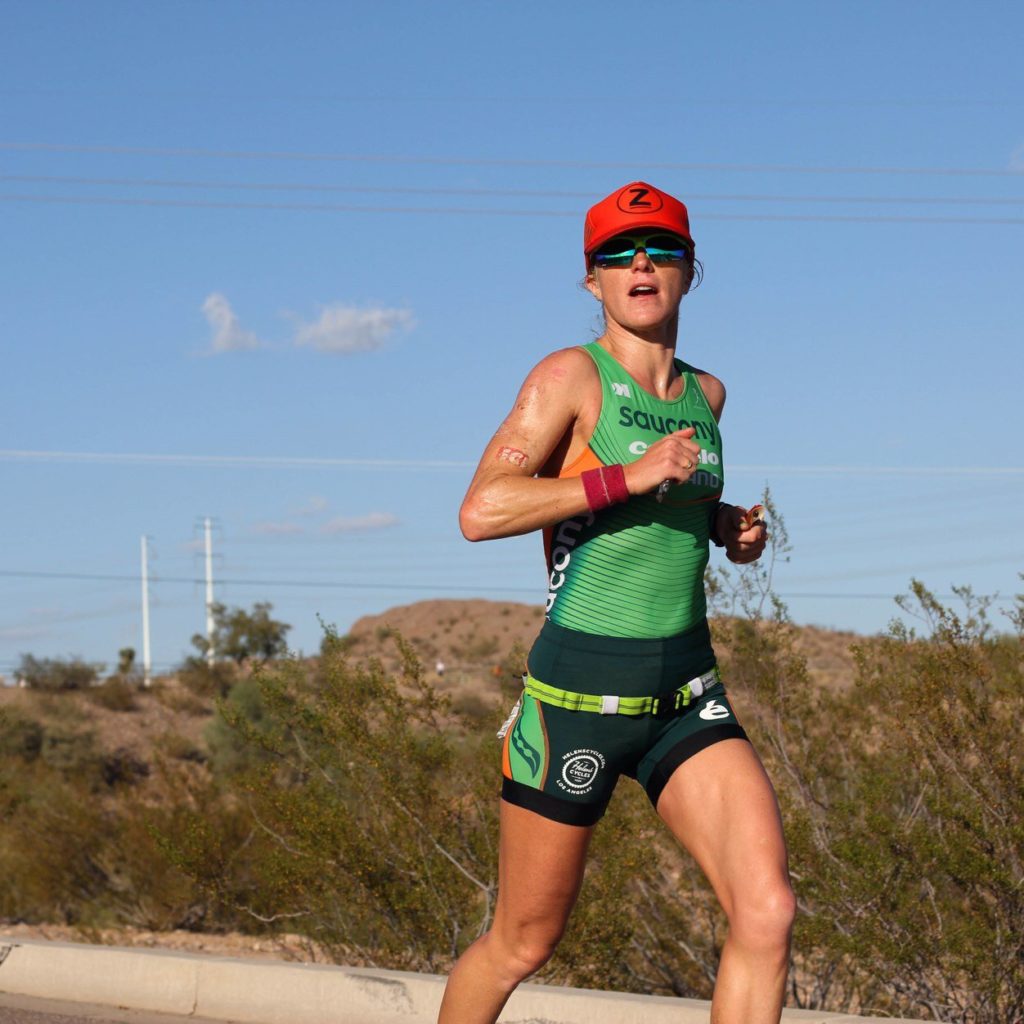I am so excited to introduce you all to Sarah Piampiano, a truly inspirational figure with an amazing story of how she became one of the world’s top female professional triathletes. Sarah was kind enough to agree to an interview where she shares her story and offers valuable advice for anyone looking to enter triathletes and have a healthier lifestyle.
Sarah Piampiano
What struck me the most about Sarah was how relatable she seemed. We are so used to hearing about seemingly ‘perfect people’ in the health and fitness industry and it was refreshing to hear how she used to have bad habits just like the rest of us. In fact, she used to smoke 2 packs of cigarettes a day and worked incredibly long hours (90-100+ a week). I feel as if Sarah provides a relatable figure for someone who wants to change their life for the better but doesn’t know how what the first step in this process involves.
HF: Hi Sarah! Tell us a bit about yourself.
SP: Hi! My story began as a competitive younger sister who had a lot of early athletic achievement. A pivotal point in my life was when my friend Todd dared me to sign up for a triathlon. Over a few too many drinks and a pack of cigarettes, I bet Todd that I could show up and beat him at his race. No training. No preparation. I won the bet, simultaneously quit smoking and started doing more triathlons. In 2012 I left my finance job to pursue a pro career as a triathlete and became one of the world’s top female triathletes. Trading my bad habits in for good ones made a huge impact on my life, and I want to pay it forward to you!
HF: What made you go into finance after having had such an active childhood?
SP: I wanted to be a surgeon and the plan was to go to medical school, so I majored in biology. When I attended college, I was geared toward premed. However, I went to a liberal arts college and ended up taking an economics course because I had to take a variety of courses. I really loved it and fell in love with studying economics; I wanted to pursue it and found it to be relevant. I could find things in the newspaper and make it applicable to what I was studying. Economy and the markets were really exciting to me, and biology wasn’t as applicable.
HF: Conversely, what was the catalyst that brought you back into the world of sports and saw you becoming a professional athlete?
SP: I tried my first triathlon when a friend bet me that I couldn’t beat him in a race. I took the bet without any preparation or training and beat him. I instantly fell in love and over time invested more and more of my time into it until I decided it was time to fully devote myself to the sport.
HF: Were your friends and family supportive of your decision to move over from a career in finance to triathletes?
SP: Yes and no. My parents were pretty nervous about my decision to switch. They supported me in whatever I did but they didn’t agree with my choice. It was because I had worked so hard to get where I was in finance, with so much job stability but wanted to give it all up for triathlons. My parents had real anxiety about the path I chose. However, as I established myself, they have gotten more on board than they were initially with my decision. My friends all thought it was really cool and it sounded exciting. Friends don’t think about the practicality of it the same way my parents did. Overall everyone was really supportive!
HF: Are there ever times you feel demotivated during training? How do you overcome this?
SP: Yes there are times definitely. Right after races, you hit post race depression and there is so much emotional energy that goes into preparing for a race, so after every race, you are still high on adrenaline. But 3-4 days later the exhaustion hits and you are mentally and physically burned out. The idea of training is hard to wrap your head around but just get the work done, get out the door and do the work, even if it isn’t your best. It makes me feel really proud of myself after getting up and doing it which always helps pull me out of a slump.
HF: What would you say your biggest challenge has been since becoming a professional athlete?
SP: Last year was my biggest challenge. I got injured when I was in the best shape and the best place I had ever been as an athlete. When I got injured, I thought about taking time off, coming back and bouncing back to where I had been. But that’s not at all how it all went. I didn’t realize how much I was losing by taking time off and really underestimated it. I wasn’t mentally prepared for how bad it actually was. It was hard to deal with mentally and emotionally and was a very frustrating few months. You must be willing to adapt, be able to put your head down and keep going. You can’t let the emotional aspect of it dominate training.
HF: How have your eating habits changed since becoming a professional athlete?
SP: When I worked in finance, I never made food and would always eat out. I would eat anything I wanted and didn’t care what I put into my body. I didn’t exercise and didn’t need to eat much. Now, I rarely eat out and I cook everything I eat! I eat a diet that is completely centered around fresh foods with almost nothing processed. I’ll eat anything between 4000-7000 calories a day now. Everything has super high nutritional value and I am so mindful about everything I put into my body. It has to be the best because of how sensitive my body has become after eating healthily for so long.
HF: Favorite food indulgence?
SP: Cheeseburgers and ice cream. Probably ice cream over cheeseburgers if I really had to choose!
HF: What advice would you give to someone who wants to compete in a triathlon but doesn’t come from an active background?
SP: I would encourage them to sign up for a sprint race or shorter distance race first. Then, join a community of people who are also training. It will help motivate you. Your training community will help you prepare and help you feel more supported because doing your first triathlon can be very scary! Being part of a community really helps with the process, and it is great to have people to celebrate with you when you achieve your goal.
HF: Every great person looks up to someone! Who would you say your source of inspiration is?
SP: I don’t have one singular person as there are so many athletes who inspire me. People who are challenged athletes are so inspiring. I legitimately think about them when I want to quit in a race. It would be easy if you were in their position to feel they aren’t capable of a lot of the things everyone does. But challenged athletes just think about what they can do and get out there and do it despite their disabilities.
If Sarah can do it, so can you!
Thank you so much to Sarah for sharing her story and for being such an inspiring figure! I am sure you can all relate to the fact that change is hard and it is amazing that Sarah made such a huge leap of faith in herself. Sarah also has a website called thehabitproject.net that is dedicated to helping people change bad habits into good ones, so please visit it and use it as a resource to help you!
What do you think of Sarah Piampiano? Do any of you have secret aspirations that seem too scary to make?
Honestly yours,
Alice
Thank you for always supporting me! For more Honestly Fitness, check out my Instagram, Facebook, Twitter & Pinterest, and don’t forget to subscribe to my newsletter!


2 Comments
Incredible story! Fitness and health really can save your life!
Thank you, Cassie! And yes, it is amazing how life changing being fit and healthy can be. It is amazing that someone could go from her lifestyle into doing intense triathlons!! x